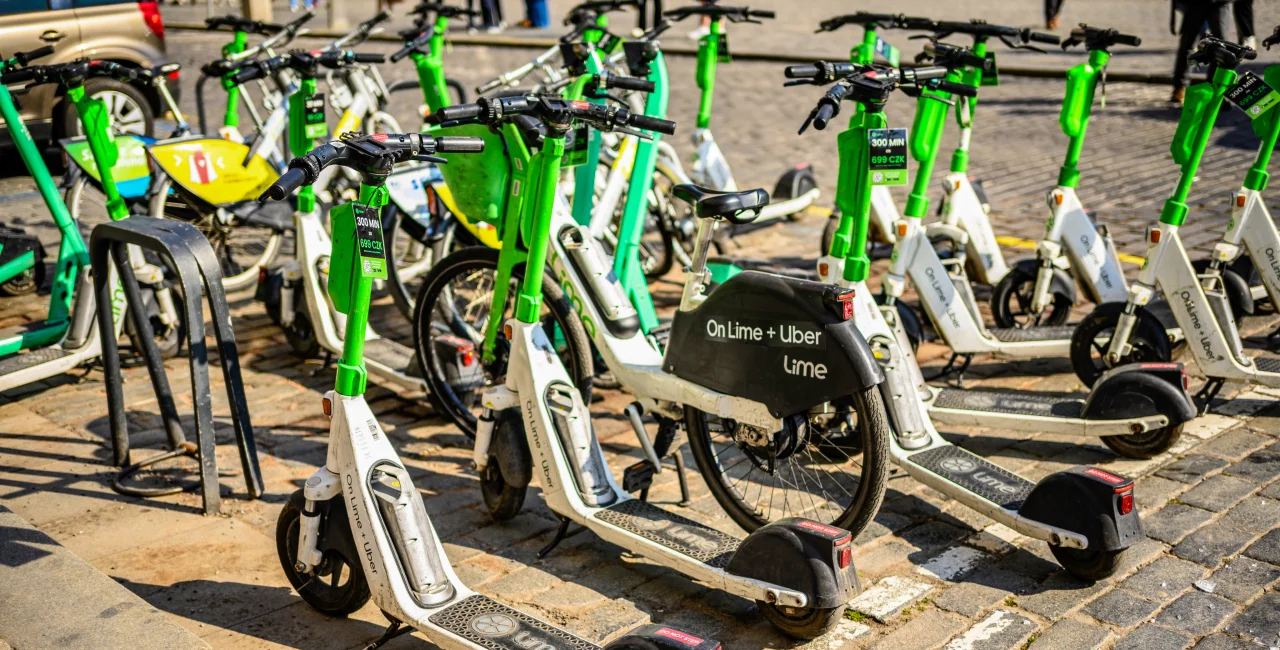Shared electric scooters will soon vanish from Prague’s streets as part of a new city transport strategy. The capital plans to ban them from public parking zones, effectively eliminating them from the shared mobility system.
Upcoming contracts with the Technical Administration of Roads (TSK) will no longer include scooters. Without legal parking access, operators will be unable to continue services.
“There will be a complete exclusion of electric shared scooter operators from public parking spaces throughout the city,” said Deputy Mayor for Transport Zdeněk Hřib.
How will the ban work?
The city’s new regulatory system will grant contracts only to shared bike and e-bike providers—not scooters. These bikes will be allowed to park in clearly marked zones overseen by TSK, with each one paying a small monthly fee.
E-scooter operators won’t be eligible for these contracts, meaning any scooter left in public areas will be considered unauthorized. TSK crews will remove such scooters and issue fines.
Operators will first receive a CZK 100 fine and a notice to remove the scooter. If it remains, the fine rises to CZK 1,000, and the scooter is confiscated. It will only be returned after payment.
Though companies could technically arrange private land for parking, Hřib said this would be too complicated and impractical on a citywide scale. Without legal, convenient parking, shared scooter operations will no longer be viable in Prague.
Why is the ban happening?
The decision follows years of public complaints, especially in the historic center. Residents say scooters are often left blocking sidewalks and used irresponsibly.
City data shows scooter users violate rules twice as often as cyclists and receive five times more fines. Last year, there were 47 reported accidents involving shared scooters, including one fatal crash.
“Unfortunately, alcohol is present to a much greater extent among users,” said TSK Director Filip Hájek.
Prague 1 has long pushed for a full ban. However, a municipal decree would affect all scooters, including private ones. The city chose a contractual approach instead, based on recommendations from the ministries of transport, interior, and industry.
What now?
The City of Prague is expected to approve the new parking zones by the end of May. After that, TSK will sign contracts with bike and e-bike providers. Shared scooter companies will then be required to remove their vehicles from city streets.
“We do not expect massive non-compliance,” said Hřib, pointing to similar outcomes in cities like Paris and Madrid where shared scooters have already been banned.
Enforcement will begin immediately following the deadline. TSK will monitor public spaces and remove any unauthorized scooters, issuing fines and requiring payment before any vehicle is returned. According to Hřib, the new system is intended to promote responsible micromobility while reducing safety risks and visual clutter in public spaces.













 Reading time: 2 minutes
Reading time: 2 minutes 





























